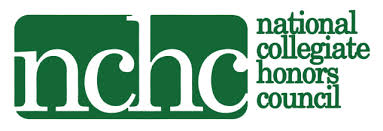From Bodice Rippers to Resistance Romances: The Politics of the Historical Romance
Instructor(s): Maria DeBlassie
Course Description
This course examines the historical romance, from the courtship novel developed in the 18th century that inspired the genre, to the 20th century bodice rippers and contemporary radical romances, or romances that celebrate social justice and HEAs (Happily Ever Afters) for all.
From the early courtship novels of Jane Austen and Elizabeth Gaskell, to the bodice rippers of the mid-twentieth century and beyond, the historical romance genre has been the place where typically women explore their sexuality, agency, and autonomy in a patriarchal society. And yet, this genre is not without its flaws, namely in how it celebrates white feminism and, as in the case of Georgette Heyer, how it can fetishize classist white supremacist fantasies. More recent authors with marginalized identities, including BIPOC and LGTBQ+ writers, resist the het-cis ableist white-washing of the genre and instead use these novels to make both history and romance more inclusive by reclaiming their space in those narratives.
In this class, we will explore how this genre both resists and reinforces gendered, sexual, racial, ablest, and class ideologies of the time in which they were written, and ultimately discover that historical romances are less about the time period they are set in (typically the Regency & Victorian Era, which this course will focus on), and more about our own contemporary values, social norms, and fantasies. The historical romance is, by its very nature, a complicated genre, both celebrating and resisting social norms.
Texts
TV Series
North & South (2004)
Northanger Abbey (2007)
Bridgerton, Season 1 (2020)
Books
Virginia Henley’s The Pirate and The Pagan (1990)
Tessa Dare’s Romancing the Duke (2014)
K.J. Charles’s Band Sinister (2018)
Lydia San Andres’s A Summer for Scandal (2015)
Beverly Jenkins’s Forbidden (2016)
E.E. Ottoman’s The Companion (2021)
Requirements
Students will be required to attend class regularly online and be prepared for active participation and discussion of course texts. Other assignments might include class activities and exercises; a short oral presentation and guided discussion on a particular topic or reading for class; two 2-4 page analytical essays on given texts; a group presentation project; and one research project on one or more of the course texts and/or tropes.
About the Instructor(s): Maria DeBlassie
Dr. Maria DeBlassie is a native New Mexican mestiza and award-winning writer and educator living in the Land of Enchantment. She writes and teaches about spooky stuff, romance, and all things witchy. She is forever looking for magic in her life and somehow always finding more than she thought was there. Find out more about Maria and conjuring everyday magic at mariadeblassie.com.



Social Media
For news, information, prizes and more fun stuff follow us on our social media!
Honors College Resources